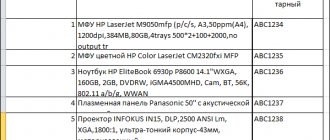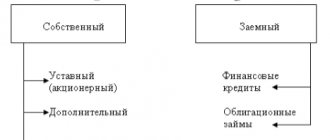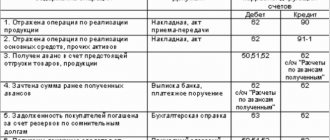Russian tax legislation provides for a number of concessions, the purpose of which is to stimulate the development of high technologies. For example, for IT companies that meet certain requirements, the insurance premium rate is reduced. In addition, at the regional level, a preferential tax rate may be established in connection with the use of the simplified tax system. A significant benefit for high-tech companies is exemption from VAT on the basis of subparagraph 26 of paragraph 2 of Article 149 of the Tax Code.
Not everything is gold...
Companies developing software for a customer quite often try to take advantage of this last benefit. However, the tax authorities refuse this and often win disputes in arbitration courts.
The fact is that taxpayers often inaccurately interpret the norm of subparagraph 26 of paragraph 2 of Article 149 of the Tax Code of the Russian Federation. the implementation of exclusive rights to programs, databases, know-how, utility models, inventions and other similar results of intellectual activity is exempt from VAT the transfer of rights to use the above-mentioned developments under license is excluded from taxation But the creation of software (software) as such, according to the Federal Tax Service and many courts, is the provision of a service or the performance of work, but not the transfer of rights to the results of intellectual activity. Consequently, such transactions are subject to VAT, which corresponds to the position of the Ministry of Finance (letter dated October 21, 2014 No. 03-07-03/52967).
The courts share a similar point of view. Thus, the Arbitration Court of the Moscow District, in its ruling in case No. A40-252272/2015, sided with the Federal Tax Service. The taxpayer insisted on exempting from VAT the operation of developing software for a third-party company, since, along with the program itself, he transferred the rights to it to the customer. But the arbitrators pointed out that the agreement between the parties provided for the performance of work on the instructions of the customer, and not the transfer of exclusive rights to a computer program.
— Tell me, why is the amount indicated in your Invoice for payment for software products WITHOUT VAT? What, you won’t give me an invoice? - Yes it is. The fact is that in this case we are not selling you a product, but are transferring non-exclusive rights to use the software product, and such a transaction, in accordance with Article 149 of the Tax Code of the Russian Federation, is not subject to VAT. — Your colleagues sell the same programs at the same price, but VAT is included in the price. It’s more profitable for me to buy from them, because I can reduce my tax payments by this amount of VAT. “We don’t know why our colleagues do this.” Perhaps they want to pay VAT, although they have every legal reason not to do so. This is their own business. But you are taking a serious risk if you are going to reduce your VAT payments by this amount. - Why is this?.. Let's figure it out.
First, let's look at the source of this question. In 2008, Federal Law No. 195-FZ of July 19, 2007 amended the Tax Code of the Russian Federation and added clause 2 of Article 149 with subclause 26, according to which:
Chapter 21 “Value Added Tax” Article 149. Transactions not subject to taxation: 2. Sale (as well as transfer, execution, provision for one’s own needs) on the territory of the Russian Federation is not subject to taxation (exempt from taxation): ... 26) exclusive rights for inventions, utility models, industrial designs, programs for electronic computers, databases, topologies of integrated circuits, production secrets (know-how), as well as rights to use the specified results of intellectual activity on the basis of a license agreement;)
It should also be noted that due to the fact that operations for the sale of rights to software are included in clause 2 of Article 149 of the Tax Code of the Russian Federation, the taxpayer does not have the right to refuse to apply this exemption.
Also in 2008, on January 1, Part 4 of the Civil Code of the Russian Federation came into force, establishing two main ways in which the copyright holder can dispose of the right that belongs to him:
- Conclusion of an agreement on the alienation of rights (Article 1234 of the Civil Code of the Russian Federation)
- Conclusion of a license agreement (Article 1235 of the Civil Code of the Russian Federation)
A software product is the result of intellectual activity. This is stated in Article 1259 of the Civil Code of the Russian Federation.
Article 1259 of the Civil Code. Objects of copyright Objects of copyright also include computer programs that are protected as literary works.
In this regard, any transfer of rights to a software product must comply with the specified rules. The developer of a software product (Licensor), replicating his work, that is, transferring it an unlimited number of times, does this clearly without alienating the right. This means that this transfer must be accompanied by the conclusion of a License Agreement .
Article 1235 of the Civil Code. License agreement 1. Under a license agreement, one party - the holder of the exclusive right to a result of intellectual activity or a means of individualization (licensor) grants or undertakes to provide the other party (licensee) with the right to use such a result or such means within the limits provided for by the agreement.
In the case when the replication of a software product is carried out through a network of intermediaries (dealers, partners, etc.), the transfer of rights by the intermediary to the end user is carried out on the basis of a Sublicense Agreement , to which all the rules on the license agreement apply in accordance with Article 1238 of the Civil Code of the Russian Federation . Thus…
Conclusion one:
If you purchase a software product from the copyright holder (or his representative) by formalizing the transfer of rights through a License or sublicense agreement, or an agreement that has all the features of a license, then by law such a transaction cannot be subject to VAT .
If the copyright holder or his representative indicated the amount of VAT in the contract, Act and Invoice, then you, as a buyer (payer), do not have the right to enter the VAT amount into the Purchase Book and thereby reduce the amount of VAT payable to the budget. If you do this, then during a VAT tax audit you have every chance of being subject to penalties.
Conclusion two:
If you purchase a software product and the transaction is not formalized by a license agreement, or a purchase and sale agreement or a paid services agreement is used, which indicates the amount of VAT, then as a result of this a reasonable question arises: “ By what right do you own and use the intellectual property? property? “In fact, this is a counterfeit! No self-respecting lawyer would put his visa in such an agreement.
Don't forget about tax audits as well. Tax inspectors quite often qualify these transactions as a transfer of rights, and based on this they issue demands for payment of VAT and fines. Judicial and arbitration practice in such cases is very contradictory. Here is a concrete example from life:
Resolution of the Federal Antimonopoly Service of the Moscow District dated September 1, 2011 No. KA-A40/9419-11 in case No. A40-140882/10-129-522 According to the inspectorate, agreements for the acquisition of rights to use computer programs concluded with a counterparty are sublicensing agreements. The rules on licensing agreements must apply to them. Such transactions are exempted on the basis of clause 26, clause 2, Article 149 of the Tax Code of the Russian Federation, which means that VAT erroneously charged by the counterparty cannot be deducted for them. The court explained that in this case, the contracts concluded and executed by the company were supply contracts. These agreements cannot be qualified as licensing (sublicensing), since they, in violation of clause 2, part 6, article 1235 of the Civil Code of the Russian Federation, do not contain instructions on the provided (permitted) methods of using the software. Thus, the cost of the supplied software was not subject to VAT exemption on the basis of clause 26, clause 2, article 149 of the Tax Code of the Russian Federation.
And - although the FAS ruling was in favor of the taxpayer - time, money and nerves were nevertheless wasted on proving his innocence.
Taking into account all of the above, our company, guided by regulatory documents and life practice, when exercising the rights to use a software product to the end user, must enter into a sublicense agreement with him.
Those companies that do not do this when selling, and indicate VAT in the invoice amount, do not think about the negative legal and tax consequences awaiting the end user.
In any case, the choice is yours.
Posted by:
Tolstikov Igor Gennadievich, General Director of JV INTEGRA LLC
The main thing is the contract
However, arbitrators do not always come to this conclusion. The content of the contract on the basis of which the software is developed and the exclusive rights to it are transferred to the customer is of decisive importance. For example, several years ago the courts considered a similar case, and then the arbitrators supported the taxpayer.
The parties entered into three agreements for the development and modification of software. The contracts were of a mixed nature and were concluded in relation to a whole range of works: drawing up technical specifications, developing and modifying software, and performing related work. It is important that each of the contracts contained conditions under which the contractor transferred to the customer exclusive rights to the results of his intellectual activity.
Representatives of the Federal Tax Service insisted that the agreements between the parties were of a contractual nature. The parties did not enter into a license agreement providing for the transfer of exclusive and non-exclusive rights. Consequently, the company challenging the tax provided its counterparty with the service of developing and modifying software, and such transactions are subject to VAT.
The court indicated that the relationship between the parties is qualified not on the basis of the name of the agreement that they entered into, but on the basis of its terms. Even though the agreements between the customer and the contractor were not called licensing agreements, they contained all the signs of such agreements. They expressed the will to transfer the rights to the exclusive use by the customer of the results of the intellectual activity of the performer and described the procedure for transferring these rights.
Moreover, according to the terms of the contracts, payment was made specifically for the transfer of rights to the software to the customer. And although the contracts contained other items in addition to the transfer of these rights (software creation and related work), these works were not paid for separately.
All of the above circumstances gave the court grounds to classify the relationship between the parties as an agreement on the alienation of exclusive rights. Thus, the court recognized the rightness of the taxpayer and the legality of his failure to pay VAT.
Is it legal to sell software without VAT?
N 03-07-11/68 and dated February 21, 2008 N 03-07-08/36, where these issues are discussed (on some, the Ministry of Finance has already expressed its opinion in earlier letters, which we also talked about earlier on the website ), and the following explanations are given for them:
The transfer by a Russian organization that is the developer and copyright holder of exclusive rights to software (software) of exclusive and non-exclusive rights to use this software on the basis of license agreements is not subject to VAT;
The place of sale of services for the transfer of exclusive or non-exclusive rights to use software on the basis of a license agreement, provided by a foreign organization to a Russian organization, is recognized as the territory of the Russian Federation, while when acquiring such rights, the Russian organization does not have to fulfill the duties of a tax agent and, accordingly, these transactions are carried out on the territory of the Russian Federation VAT is not assessed;
The procedure for applying VAT in relation to services for the transfer of rights to use software on the basis of license agreements concluded before January 1, 2008 depends on the moment of actual provision of such services. For rights transferred in 2007 and used in both 2007 and 2008, VAT is paid only on the cost of services for the transfer of rights provided in 2007;
There is no exemption from VAT for license support services (updating, technical support) on the territory of the Russian Federation;
Transactions involving the transfer of rights to use computer software through the wholesale supply of copies of software on media in a sales package containing the terms of a license agreement (packaging license) are subject to VAT taxation, unless a written license agreement is concluded at the time of sale;
When carrying out operations to distribute rights to use software through an intermediary with the transfer of these rights from the manufacturing organization through an intermediary to the end consumer, such operations are not subject to VAT only if there are licensing agreements;
The rule on exemption from VAT taxation of the transfer of rights to use computer programs can be applied when transferring such rights on the basis of a sublicense agreement.
conclusions
So, in order to apply the benefits provided for in subparagraph 26 of paragraph 2 of Article 149 of the Tax Code of the Russian Federation, it is necessary to carefully work on drawing up the agreement. It would be good if it was called a license , but in any case it must contain all the essential terms of such an agreement in accordance with Article 1296 of the Civil Code.
The main thing that should be spelled out in detail in the contract is the conditions for transferring the software to the customer and the accompanying transfer of exclusive and non-exclusive rights . If there are several subjects of the contract, for example, drawing up technical specifications, software development and transfer of rights, it is worth describing in detail the conditions of each of these subjects/stages. Please note that since these tax preferences apply to the transfer of rights, payment must be linked to this process.
The contract should also note the need for software updates or support. Let us note that, according to the Federal Tax Service and arbitration courts, services for updating or modifying programs to meet customer requirements are operations subject to VAT.







